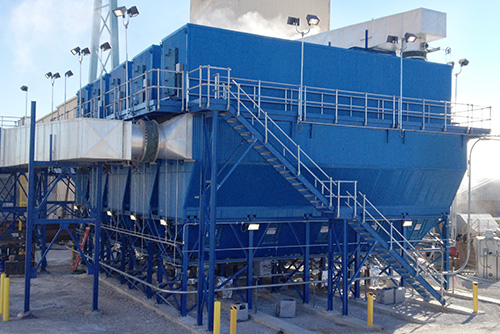
 Downloads
DownloadsThe majority of U.S. facilities seeking control of glass furnace emissions have chosen Tri-Mer UltraCat Catalytic Filter Systems.
Worldwide, more than 3 dozen glass furnaces use Tri-Mer ceramic filter technology and advanced Tri-Mer system design. These systems are operating in flat glass, container glass, and tableware. In the United States, Tri-Mer Catalytic Filter Systems readily meet EPA and state requirements for particulate (PM), SO2, HCl, metals, and NOx.

• Particulate (PM 10, PM 2.5, PM 1.0) • NOx • SOx (SO2, SO3) • HCl, HF • Metals (Selenium, Arsenic …) • Mercury • Hexavalent Chrome • Dioxins / Furans • Selective VOC (Cement O-HAPS) • Add-on CO module available